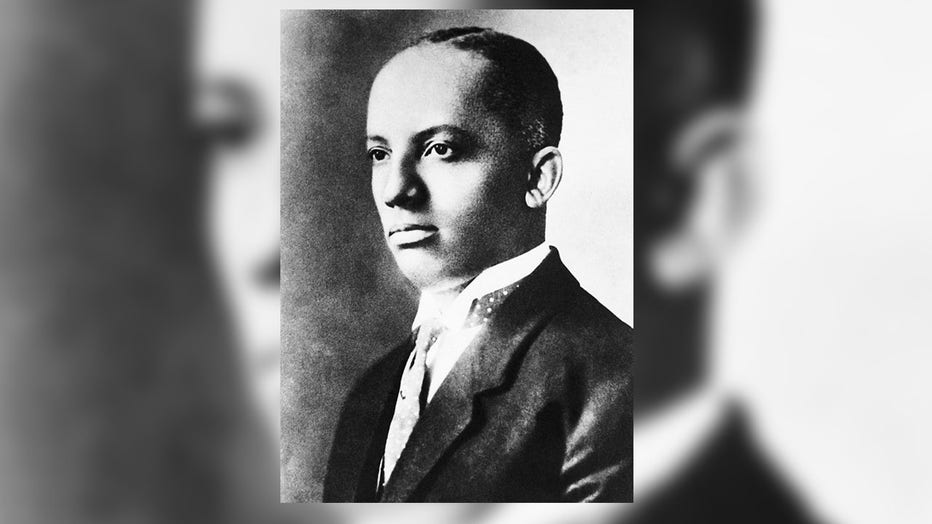Black History Month: The little-known backstory
LOS ANGELES - February marks the start of Black History Month and while many people are familiar with the annual celebration, the details of its origin are not as well known.
The story of Black History Month dates back to the founding of the Association for the Study of Negro Life and History (ASNLH) in 1915. The organization was started by historian Carter G. Woodson and minister Jesse E. Moorland with the purpose of promoting the achievements of African Americans. Today, the organization is known as the Association for the Study of African American Life and History (ASALH.)
"If a race has no history, it has no worthwhile tradition, it becomes a negligible factor in the thought of the world, and it stands in danger of being exterminated," Woodson once said.
During the second week of February in 1926, ASALH sponsored its first-ever national Negro History Week to highlight the contributions of African Americans throughout U.S. history. The timing of the event coincided with the birthdays of Abraham Lincoln and Frederick Douglass, two figures who played a vital role in abolishing slavery.
The week inspired several communities and schools across the nation to put on their own celebrations, which often included various performances and lectures.

FILE: Carter Goodwin Woodson (1875-1950), the African American historian who created Black History Month, is shown in a head and shoulders portrait. (Getty Images)
In the decades to follow, cities throughout the U.S. began recognizing Negro History Week as an annual event.
By the 1960s, the week informally evolved into Black History Month on many college campuses. This was partially due to the Civil Rights Movement and the growing awareness of black identity, which was largely still being ignored in schools across the nation. During that time, only two black people were mentioned in the most popular textbook for eighth-grade U.S. history classes, according to TIME.
In 1976, the celebration was officially expanded into a month with President Gerald Ford urging Americans to "seize the opportunity to honor the too-often neglected accomplishments of black Americans in every area of endeavor throughout our history."
Since then, every U.S. president has recognized the month of February as Black History Month and endorsed a specific theme selected by ASALH.
The 2021 theme is "The Black Family: Representation, Identity, and Diversity," a topic of study in many disciplines - history, literature, the visual arts and film studies, sociology, anthropology, and social policy.
RELATED: Black History Month: How an Austin teen turned lemons and honey into a multi-million dollar business
"Its representation, identity, and diversity have been reverenced, stereotyped, and vilified from the days of slavery to our own time," the ASALH website wrote. "The black family knows no single location, since family reunions and genetic-ancestry searches testify to the spread of family members across states, nations, and continents."
ASALH said this theme offers a rich tapestry of images for exploring the African American past and present.
"While the role of the black family has been described by some as a microcosm of the entire race, its complexity as the ‘foundation’ of African American life and history can be seen in numerous debates over how to represent its meaning and typicality from a historical perspective—as slave or free, as patriarchal or matriarchal/matrifocal, as single-headed or dual-headed household, as extended or nuclear, as fictive kin or blood lineage, as legal or common law, and as black or interracial, etc.," the website continued.
In 2017, Kamala Harris, current vice president and then senator, honored the month, writing on social media, "Today kicks off Black History Month, a time not only to honor the historic accomplishments of those whose names we know so well — but also to recognize the everyday heroes. Among those lesser known is a man whose early path inspired my own: Wiley Manuel, who became the first African-American Justice of the Supreme Court of California. Let’s use Black History Month to honor not only figures like Martin Luther King, Jr. and Rosa Parks, but also the Wiley Manuels, the grandmothers, the teachers, and the neighbors — all of whom have contributed to making our communities, state, and country more just places for all. Let us also aspire to do the same for the next generation, whether they will know our names or not."


